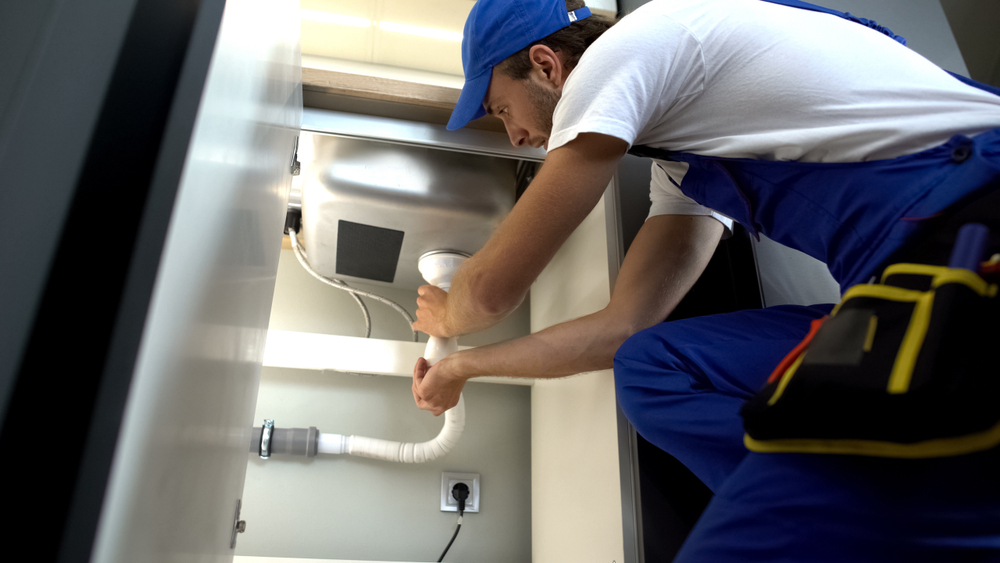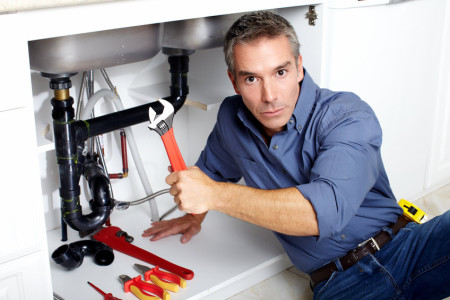Just how do you really feel about Expert Tips for Emergency Plumbing Repairs?

Plumbing emergency situations can strike any time, triggering anxiety and potential damages to your home. Whether it's a ruptured pipeline, a blocked drain, or a leaky tap, understanding exactly how to manage the scenario till an expert plumbing arrives can conserve you from additional difficulties. This post offers essential emergency situation plumbing tips to aid you alleviate damage and reclaim control throughout a plumbing situation.
Shut off the Supply Of Water
The very first step in any type of plumbing emergency situation is to shut off the water. For local issues, such as a dripping faucet or commode, shut off the valve near the component. In the case of a significant leak or ruptured pipe, locate your home's primary water shut-off valve and turn it off quickly. Recognizing the location of these shutoffs in advance can conserve important time throughout an emergency.
Shut down Your Water Heater
In particular emergencies, such as a ruptured pipe, it's important to turn off your hot water heater. This avoids getting too hot or damage to the system when water stops streaming. Switch off the power supply to the water heater (electrical or gas) and let it cool off to avoid prospective threats.
Briefly Quit a Burst Pipe
A ruptured pipeline can lead to considerable water damages in minutes. To alleviate the issue:
Call a professional plumbing promptly to resolve the problem permanently.
Have an Emergency Situation Pipes Kit
Prepare a fundamental pipes emergency situation package to handle minor problems properly. Your kit ought to include:
Having these devices accessible can make a substantial difference in your ability to manage emergencies.
Unclog Drains Securely.
A stopped up drainpipe can be an irritating and messy concern. Below's how to tackle it:.
If these techniques don't function, prevent utilizing extreme pressure, as it might aggravate the clog.
Take Care Of Overflowing Toilets.
An overruning commode can create prompt disorder. Below's what you need to do:.
Address Tiny Leakages with Short-term Fixes.
Tiny leaks can rapidly become substantial troubles if left untreated. Utilize these temporary solutions until specialist assistance arrives:.
While these fixes aren't long-term, they can help lessen water loss and damage.
Manage Frozen Pipes Very Carefully.
In cooler climates, icy pipelines are a typical emergency situation. If you think an icy pipe:.
Know When to Call a Specialist.
While quick fixes can help briefly, particular pipes issues need prompt professional interest. Call a plumbing professional if:.
Promptly getting in touch with an expert makes sure the concern is resolved correctly and avoids additional issues.
Protect against More Damage.
Taking quick action to decrease damages can conserve you time and money in the long run. Here's how:.
Final thought.
Plumbing emergencies can be overwhelming, but with the right knowledge and devices, you can take care of the scenario properly till assistance shows up. By shutting off the supply of water, dealing with small leaks, and making use of short-lived solutions, you can lessen damage and keep your home safe. Bear in mind, these suggestions are short-term solutions; always get in touch with an accredited plumbing to deal with the root cause of the trouble. Prep work and quick thinking are your ideal allies in any kind of plumbing emergency.
8 Helpful Tips for Managing Plumbing Emergencies at Home
If your plumbing system hasn’t failed once, wait for it because almost everyone has a story to tell. Sometimes, it could be simple emergencies such as a leaking pipe, a blocked cistern, or even a big burst pipe. In situations like this, you need to have some handy tips to save you some money and from possible damages.
Take care of minor issues early.
Sometimes, you could have avoided an emergency by taking proactive measures while it was still early. Some major plumbing emergencies can be a result of an ignored minor issue. We recommend that you have items like plumbing tapes and other related items. A plumbing tape can allow you to manage minor leaks before the plumber arrives.
Cut off the water supply.
This tip is essential in almost any type of leakage problem. For problems like minor leakages in the toilet or kitchen, turn off the supply that takes water to the affected pipes. If the leakage is a major pipe, you must shut off the supply valve to the entire building. This will help you avoid flooding your home and neighbors if you share a flat.
Know your plumbing system
Folks typically move into a new apartment without understanding the water supply around the building. This can prove disastrous if a water emergency arises and the plumber is far away. The previous tip will prove useless if you don’t practice this one. More importantly, know where your water shut-off valve is located – you’ll need that knowledge to prevent potential home floods.
Have some common handy tools
There are lots of plumbing emergencies that you can handle without hiring a plumber. That’s why you must keep some tools available always. Some tools that you can use to fix simple plumbing emergencies easily include plumbing tapes, screwdrivers, thread seal tapes, plungers, pliers, tape measures, and rubber gloves.
Insulate your pipes from cold
You’ll save yourself from many plumbing expenses if you protect your water pipes from the cold. This is because of the harmful effects that cold weather can have on your pipes. During winter, your pipes can burst from being overly expected to freezing temperatures. So, make sure insulators are there to keep the pipes working correctly.
Avoid practices that will clog your toilet.
Many people indulge in practices that can damage the plumbing system of the entire building. One of these is when they use their toilet to dispose-off garbage. They flush all kinds of things, such as paper towels, bandages, hairs, female sanitary products, etc., down the toilet. This will block your toilet in the long run, incurring unnecessary expenditures. Dump such waste in the trash instead.
Check your dials regularly.
Sometimes, there could be leakages in your home without noticing them in time. So, constantly monitor your water meter dial. If the dial is reading when there is nobody using water, this is an indicator that there is leaking. Check for leaks immediately. Call a plumber as soon as possible if you can’t find any.
https://www.constructionplacements.com/8-helpful-tips-for-managing-plumbing-emergencies-at-home/

Hopefully you enjoyed our topic about What to Do While Waiting for an Emergency Plumber. Many thanks for taking the time to read through our article post. So long as you liked our blog posting if you please do not forget to pass it around. Kudos for your time. Kindly come visit our website back soon.
Call Today